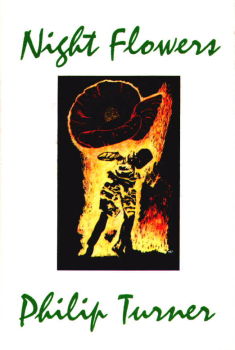"...black suns blazed their hellish light
To mask the dawn in afternoon.
Through blinded eyes, I watched it shine.
Trapped by thought,
the night flower strained
but fell short of the sun..."
From ĎAn Epitaph'
Started in 1975 and heavily revised over the next five or six years, this book has aways been considered way ahead of its time – or so the publishers which rejected it have suggested in their comments about it.
The 1998 Farrago & Farrago edition marked the novel's arrival at an age of majority, and anticipated its twenty-fifth birthday and the arrival of the outside world at the eve of the third millennium – the real one, not the bogus millennium change foisted on the country by its politicians and newspaper editors.
As the 20th Century became one with history, that outside world still had a lot of catching up to do to get anywhere near the author's ideas for concentrated refuse recycling on a grand and extremely profitable scale. And highly profitable that business will be some day. In Night Flowers, the opportunity to turn other people's discards into electrical power, hot water for industrial and domestic heating and renewed materials is worth a vicious commercial war in a society that has already taken a plunge into lawlessness on a grand scale.
In this world, all sorts of people carry arms quite legitimately because there are plenty of others ready to take advantage of them if they are unready or unwilling to defend themselves. Looking forward from 1975, the author has anticipated the next step beyond so-called 'booze cruises'. In the world of his book, citizens at every level of society are prepared to circumvent taxes which they believe to be unjust. And those responsible for administering justice have adopted a very pragmatic attitude of mind in response.
As ever, the many are going about their lives and creating a framework of normality, in and out of which the extraordinary duck and dive as they do their particular thing.
All rights reserved.
The author asserts his moral right of identification.
Written between 1975 and 1983, first published in 1998 by Farrago & Farrago.
This Edition published in 2005 by Romiley Literary Circle
© 1975-2005, Philip Turner.

|



